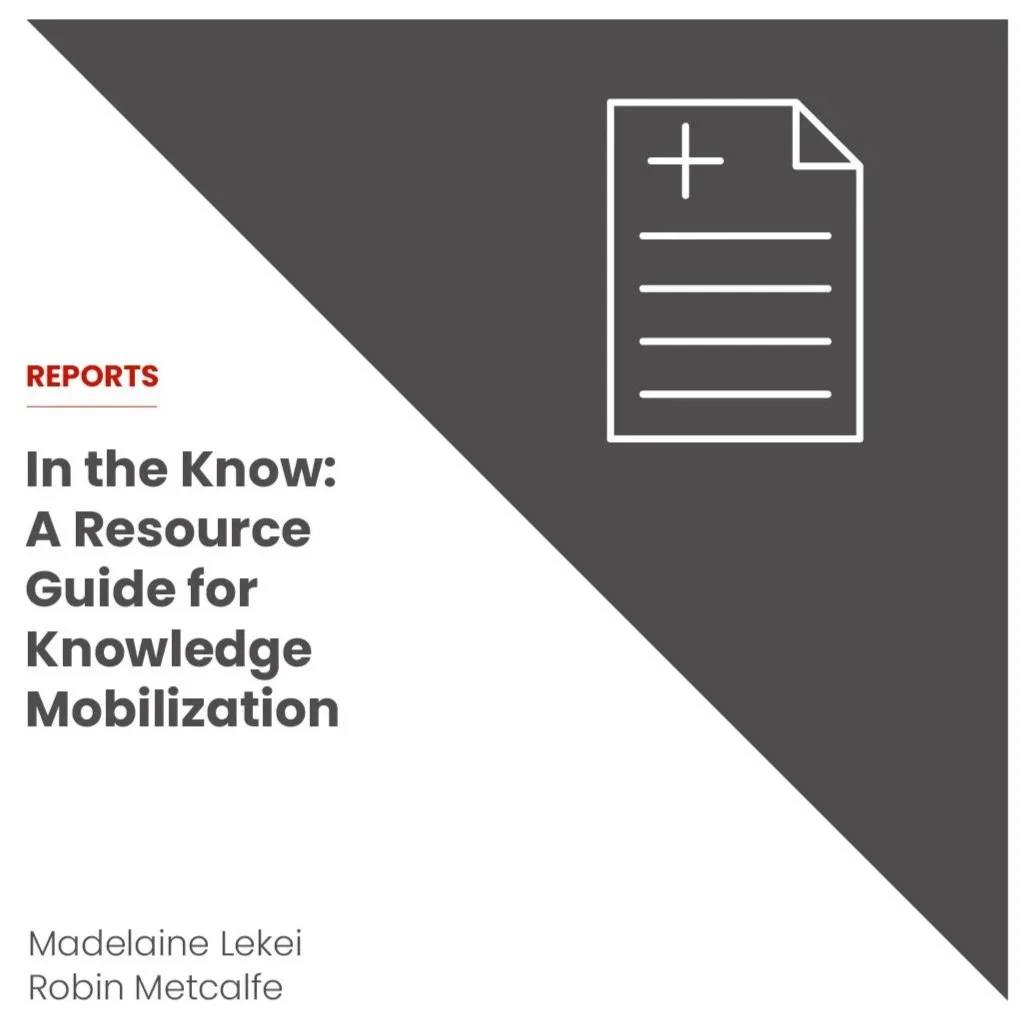
In the Know: A Resource Guide for Knowledge Mobilization
Authors:
Madelaine Lekei
Robin Metcalfe
Joanne Carey
Christine Schreyer
Date:
2024
ISBN: 978-1-988804-31-6
Abstract:
A resource guide based on the series of workshops created by the Institute for Community Engaged Research, UBC Okanagan, during the 2019-20 year. Each workshop focussed on a different example of Knowledge Mobilization media. The guide includes a description of each workshop, and an annotated bibliography of each mode. These include: Twitter, games, graphic novels, theatre, memes, and podcasting.
-
Madelaine Lekei (she/her) completed her Bachelor of Arts degree (2020) with a major in Anthropology at the University of British Columbia, Okanagan campus. As an ethnographer and anthropologist, Madelaine studies the intersections of visual, material, and digital culture with an emphasis on sensory knowledge, critical disability studies, and community-based methods. While currently non-disabled, Madelaine navigates the world with complex trauma and multiple forms of chronic pain that influence her daily physical, mental, and emotional capacities. As a queer and feminist scholar, this embodied lived experience is central in her research, writing, and living.
Robin Metcalfe - I am a PhD student at UBC Okanagan with a focus on disability. I recently completed a Master of Social Work which built on my interests in mental health and trauma-informed practice in the fields of education and human rights. I am a graduate researcher at the Canadian Institute for Inclusion and Citizenship and have supported research knowledge mobilization projects with the Institute for Community Engaged Research, both at UBC Okanagan. My current research interests include disability justice and transnational feminist disability perspectives, inclusive plurilingual approaches in education, and community-based, queer, and feminist methodologies. Along with collaborators in the UK, Fiji, Aoteroa, and Myanamar, I am engaged in collaborative writing and research projects about feminist creative activism and disability justice knowledge from a Fiji perspective, and the development of a multilingual digital storybook portal tailored for Myanmar.
Joanne Carey (she/her/hers) is the Research Administrator for the Institute for Community Engaged Research (ICER), UBC Okanagan. While managing the day-to-day operations of ICER, she also supports students, community partners and researchers with various projects, grants, editing, knowledge mobilization activities and event planning. She has worked in project management; qualitative research; grant administration, evaluation and writing; as well as non-profit management for twenty years. She has a MA (Sociology) from Memorial University, a BA (Sociology) from UBC, and a diploma in Writing & Publishing from Okanagan College. She was born and raised on the unceded and traditional territories of Syilx Okanagan Nation, and continues to benefit from the nation’s stewardship of these lands.
Christine Schreyer (she/her/hers) is an associate professor of anthropology at the University of British Columbia, Okanagan campus, where she teaches a range of courses in linguistic anthropology. Her research focuses on language revitalization and documentation, in Canada and in Papua New Guinea, as well as the relationship between endangered language communities and created language communities. She has conducted research with the Na’vi speech community (from the movie Avatar) and she is the creator of the Kryptonian language from Man of Steel (2013). Recently, she was co-producer of the documentary film Kala Language Project: Kala Walo Nuã about her community-based work with Kala speakers. She is also an executive producer for the documentary film Conlanging: The Art of Crafting Tongues, which will be completed in 2016.
-
Use these keywords to search below for related publications with ICER Press.
ICER, Knowledge, Knowledge mobilization, Workshops

